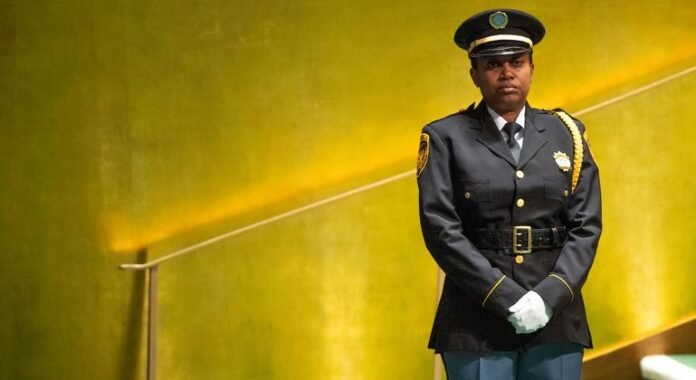Important things to know about the general debate starting Tuesday, September 24:
What is the general debate?
The General Debate is an annual meeting of the heads of state and government of the 193 member states of the United Nations. This Vishwa Panchayat is held at the beginning of the annual session of the United Nations General Assembly, often referred to as the UNGA.
The general debate is usually the first debate of the session and the only debate in which heads of state and government regularly participate, except for high-level meetings.
Is it really a debate?
Indeed, the general debate gives representatives of all member states (and some other organizations) the opportunity to present their views in front of a distinguished audience in the General Assembly auditorium.
There is no discussion or debate immediately after a speech. However, member states have the right to reply and this is done in writing by a head of state.
This letter is addressed to the Secretary General, who distributes it to all member states. During general debate, statements are made at the end of each day using the right of reply.
What is the theme of this session?
The theme of the 79th session of the United Nations General Assembly is: “Leaving No One Behind: Working Together to Advance Peace, Sustainable Development and Human Dignity for Current and Future Generations.”
The President of the General Assembly took this decision after extensive discussion. Many heads of state may mention it in their speeches but are not obliged to do so.
Who will speak when?

According to current practice, the UN Secretary-General makes a statement at the beginning of the meeting, followed by a statement by the President of the General Assembly.
Traditionally, or rather since the 10th General Assembly session in September 1955, Brazil speaks at the opening of the general debate.
According to UN Protocol and Liaison Services, in the early days no country was prepared to speak first, and Brazil assumed this responsibility on several occasions.
The United States took the stage after Brazil as the host country of the United Nations.
The order of speeches of the other 191 member states is based on criteria such as geographical balance, level of representation and their priorities – for example, heads of state are not required to be present in New York at the start of the general debate.
Also, only non-member states with observer status at the UN are invited, notably the Holy See and Palestine as well as the European Union.
Red light and bright face

There is a voluntary 15-minute speaking time limit during general debate, and speakers are notified by a red flashing light when time is up, although they are never stopped or interrupted.
The key word here is “voluntary” and most heads of state speak longer than the allotted 15 minutes.
In 1960, former Cuban leader Fidel Castro set the record for the longest speech at 269 minutes, when he promised “we will do our best to be brief.”
Other long speeches have also been given, but some have become perhaps more notable for their content than their length.

In 2006, amid rising tensions between the United States and Venezuela, Venezuelan President Hugo Chavez called then-US President George W. Bush “the devil” from the stage.
In 2009, late Libyan leader Muammar Gaddafi gave a 100-minute long speech in which he strongly criticized the veto power of the UN Security Council and its five permanent members.
In 2012, Israeli Prime Minister Benjamin Netanyahu warned the world that Iran was just months away from developing nuclear weapons by showing a cartoon image of a bomb.
And in 2017, US President Donald Trump threatened to “totally destroy North Korea”, while North Korean leader Kim Jong Un hated Donald Trump and called him “Rocket Man”.
gavel, walk-out
The first General Debate was held in 1946 and over the course of more than 80 years, many traditions and interesting anecdotes have developed around the event.
In 1952, Iceland presented a gift to the United Nations, which was used to initiate morning and afternoon sessions of general debate and to maintain order when necessary.
It was used in an attempt to silence Nikita Khrushchev, the leader of the Soviet Union, when he tried to emphasize his point by kicking his shoes on stage.
Sometimes diplomatic etiquette is reversed when, to protest the ideology and actions of another member state, the entire delegation leaves the General Assembly hall. However, it has become so common in recent years that this performance is no longer surprising.
Israel and Iran regularly contradict each other’s statements.

How to see the general debate?
Although the General Debate is not open to the public, its proceedings will be available live and on-demand on UN Web TV.
All speeches in the General Debate are available at the United Nations Dag Hammarskjöld Library.
The proceedings of many of the past 78 general debates, or excerpts from them, are available in the United Nations Audio Visual Library.

